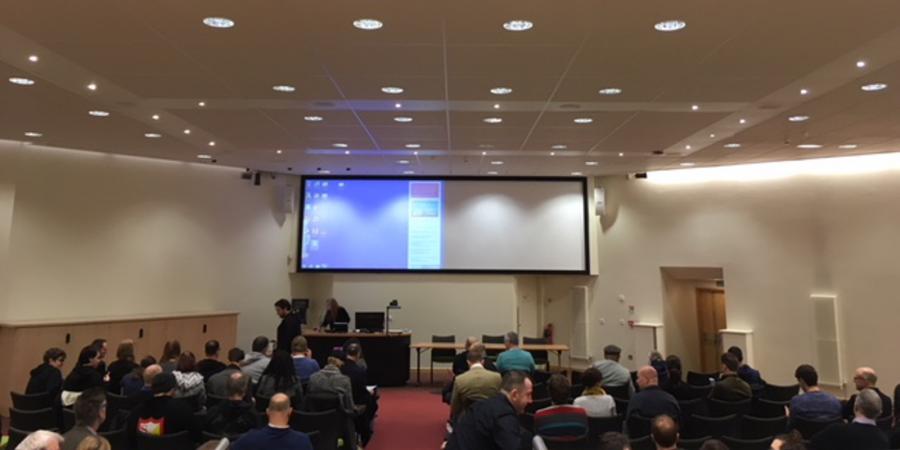The University of Bradford was the scene of the first Modern Conflict Research Symposium (3 Feb 2018). Wessex Archaeology sponsored the event and two members of staff (Bob Clarke and Si Cleggett) attended the conference – along with a display covering the results from the recent multi-phase excavation at Larkhill carried out on behalf of the Defence Infrastructure Organisation and consultants WYG.

The Symposium was a multi-discipline affair covering a rather eclectic, but no less interesting, series of presentations. The morning was given over to current PhD students discussing an empty-graves proposal for the missing of World War I; the developments surrounding prosthetic limbs for those injured in WWI; the effects of the Dambusters Raid in wartime Britain and Germany, through to the effects of conflict on the modern soldier.
Keynote speakers throughout the rest of the day discussed a number of aspects of modern warfare, including the effects of the geography on the battlefield, environmental aspects of conflict and some thoughts on conservation in a paper entitled ‘Rust Never Sleeps’. The conference was rounded off by good friend of WA, Richard Osgood who provided the delegates with a wide ranging, but relevant, assessment of why conflict archaeology matters. It was satisfying to hear many speakers referred to recent WA work on military landscapes.
Discussions with Si and Bob during the breaks were wide ranging, with many interested in the role commercial archaeology is playing in the discovery, recording and interpretation of recent finds across the military estate and beyond. The multi-disciplinary aspect of modern conflict archaeology meant that quite a number of delegates were encountering Wessex Archaeology for the first time and the request for business cards was brisk and our poster presentation won the competition for most engaging presentation.
Our attendance at this event could not have been possible without the backing and expertise of the whole Wessex Archaeology team (special mention should be extended to Ken Lymer who designed the posters with Si), who we hope now feel firmly on the map when it comes to conflict archaeology.
